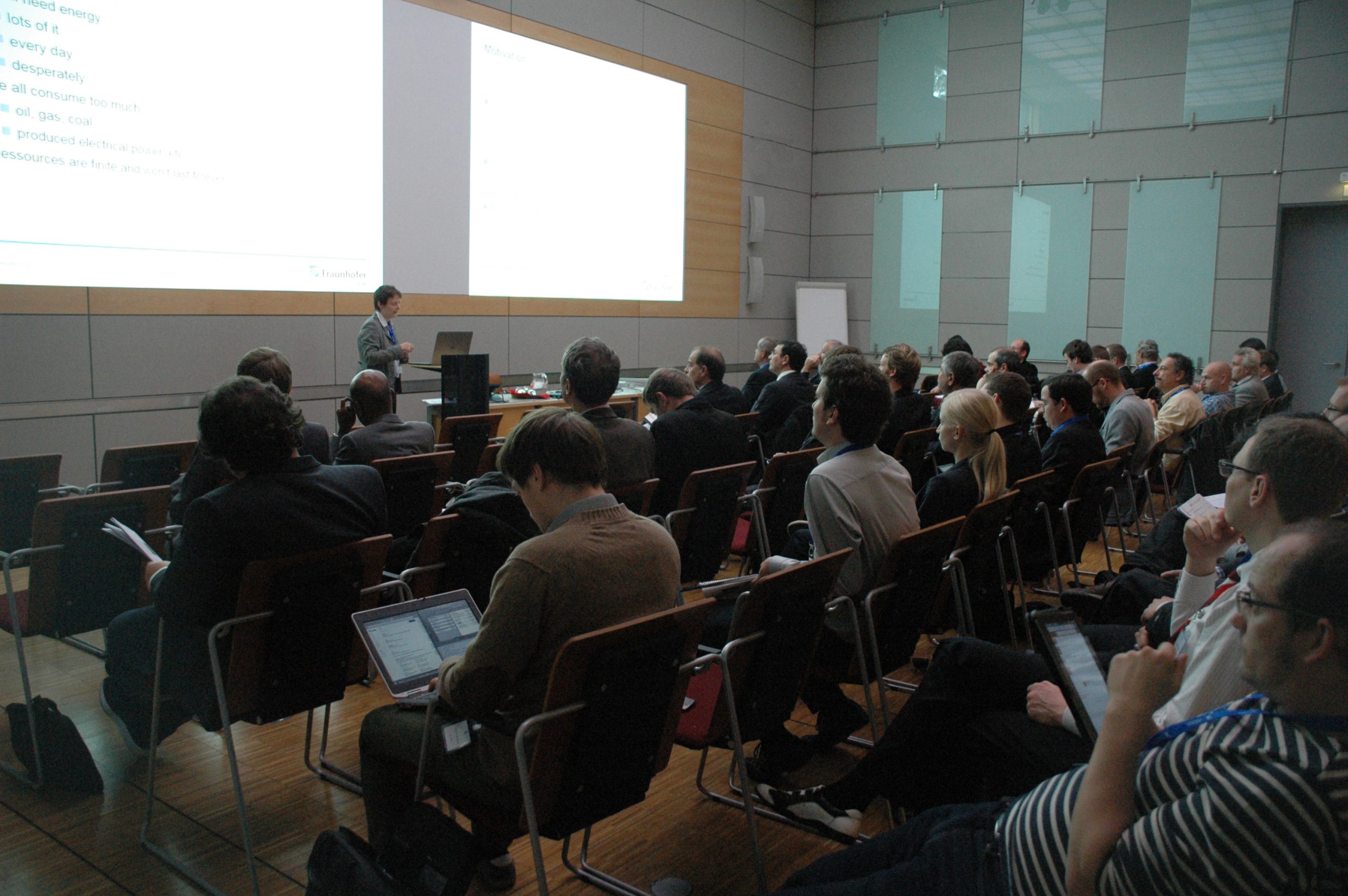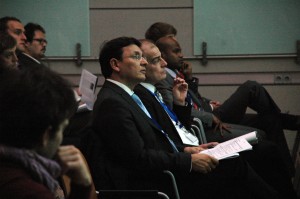ISESO: On the road to a new energy management

On November 9 and 10, 2015, the International Symposium on Energy System Optimization (ISESO 2015) took place at the Studio Villa Bosch conference center in Heidelberg. More than 50 participants from Europe, North and South America discussed how methods from different disciplines, such as mathematics, electrical engineering, economics and operations research can help us tackle the many challenges facing our energy systems.
Keynote speakers were: Prof. Claudio Canizares, University of Waterloo / Canada, talking about energy management systems for local and small grids; Dr. Tanja Clees, Fraunhofer Institute SCAI, St. Augustine, who presented a system for simulation, analysis and optimization of energy networks; Prof. Shmuel S. Oren, UCLA Berkeley / USA, who focused on smart markets for smart electricity grid.
The Symposium was initiated by a consortium including partners from HITS, Heidelberg University and Karlsruhe Institute of Technology (KIT) working together within the research project “New Approaches to Integrated Energy Systems and Grid Modeling” funded by the DFG (Deutsche Forschungsgemeinschaft).
The symposium organizers were Prof. Wolf Fichtner (KIT), Prof. Vincent Heuveline (Heidelberg University/ HITS), Prof. Thomas Leibfried (KIT), Dr. Valentin Bertsch (KIT), Dr. Michael Schick (HITS), Philipp Gerstner (HITS), and Dr. Michael Suriyah (KIT).

About HITS
HITS, the Heidelberg Institute for Theoretical Studies, was established in 2010 by physicist and SAP co-founder Klaus Tschira (1940-2015) and the Klaus Tschira Foundation as a private, non-profit research institute. HITS conducts basic research in the natural, mathematical, and computer sciences. Major research directions include complex simulations across scales, making sense of data, and enabling science via computational research. Application areas range from molecular biology to astrophysics. An essential characteristic of the Institute is interdisciplinarity, implemented in numerous cross-group and cross-disciplinary projects. The base funding of HITS is provided by the Klaus Tschira Foundation.
